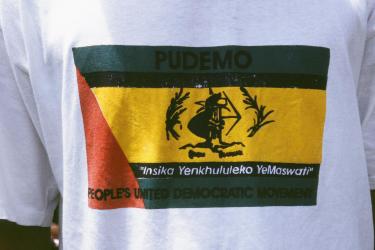By John Pilger
October 7, 2008 -- The political rupture in South Africa is being presented in the outside world as the personal tragedy and humiliation of one man, Thabo Mbeki. It is reminiscent of the beatification of Nelson Mandela at the death of apartheid.

This is not to diminish the power of personalities, but their importance is often as a distraction from the historical forces they serve and manage. Frantz Fanon had this in mind when, in The Wretched of the Earth, he described the "historic mission" of much of Africa's post-colonial ruling class as "that of intermediary [whose] mission has nothing to do with transforming the nation: it consists, prosaically, of being the transmission line between the nation and a capitalism, rampant though camouflaged".
Mbeki's fall and the collapse of Wall Street are concurrent and related events, as they were predictable. Glimpse back to 1985 when the Johannesburg stock market crashed and the apartheid regime defaulted on its mounting debt and the chieftains of South African capital took fright.





